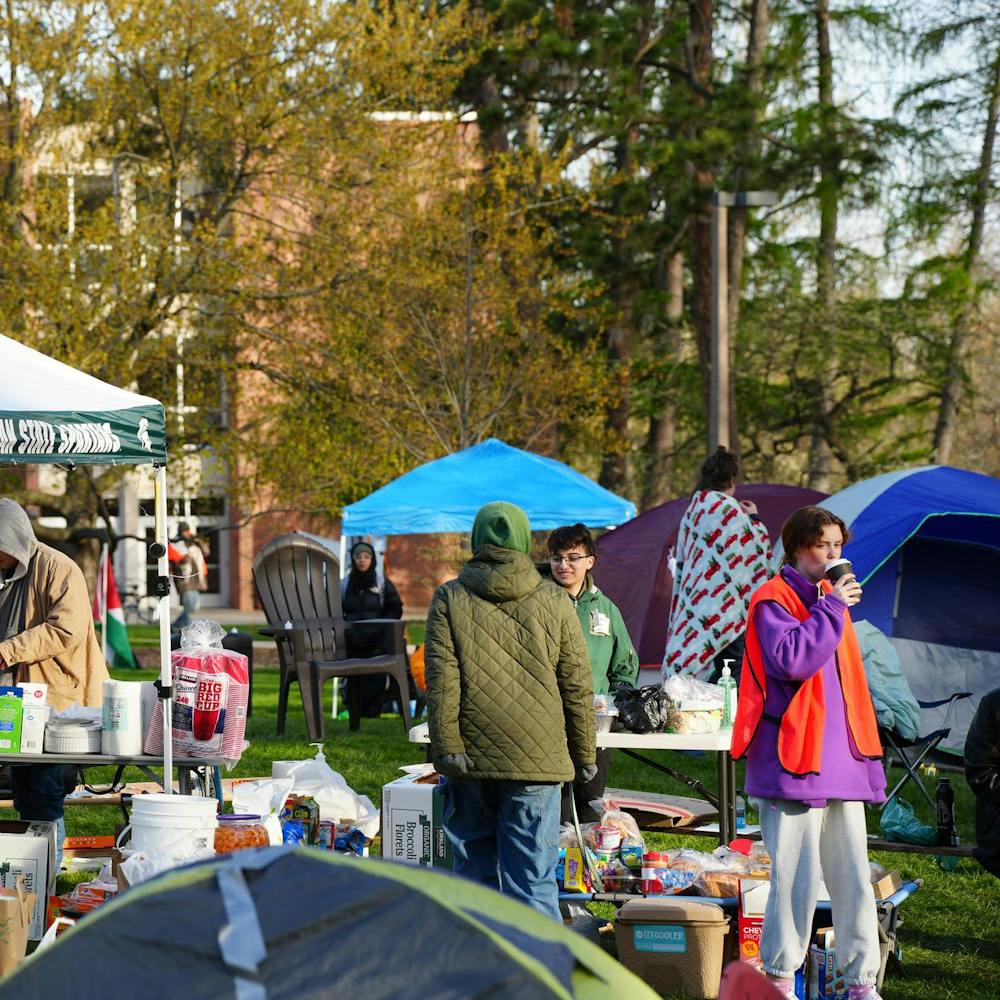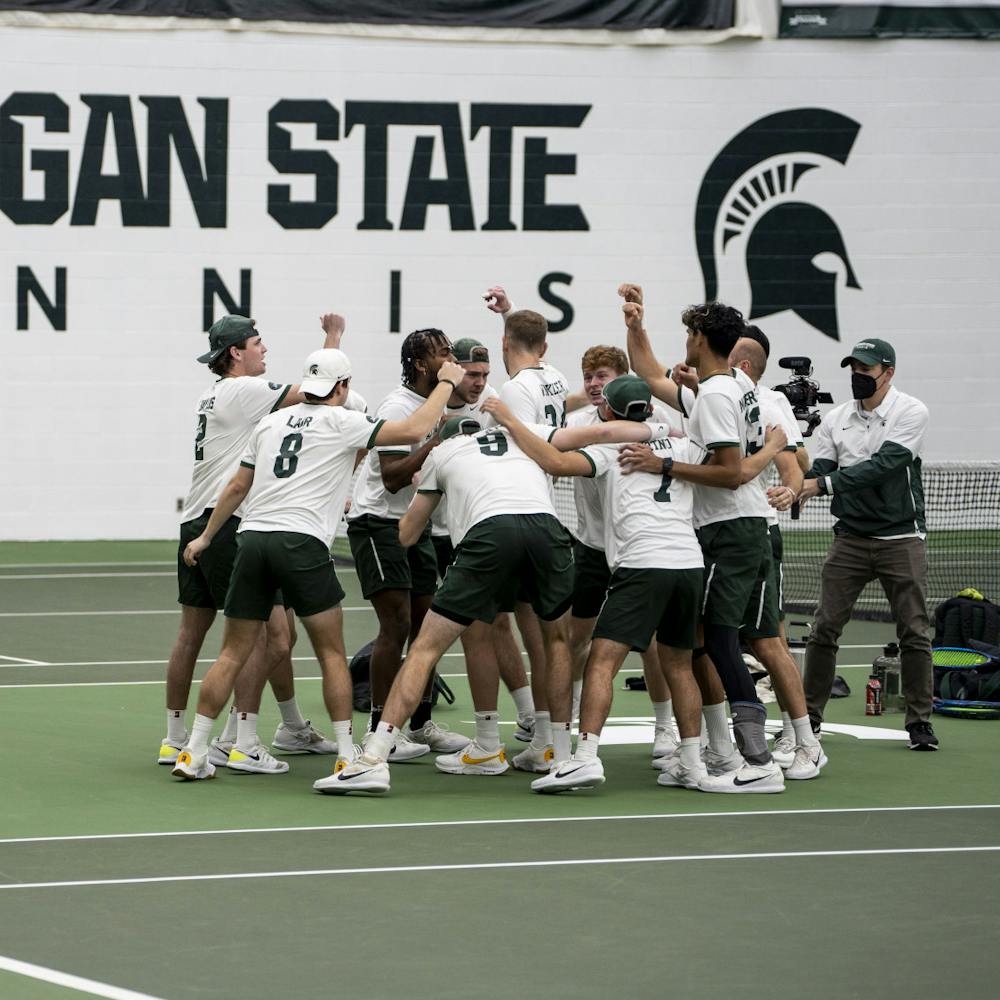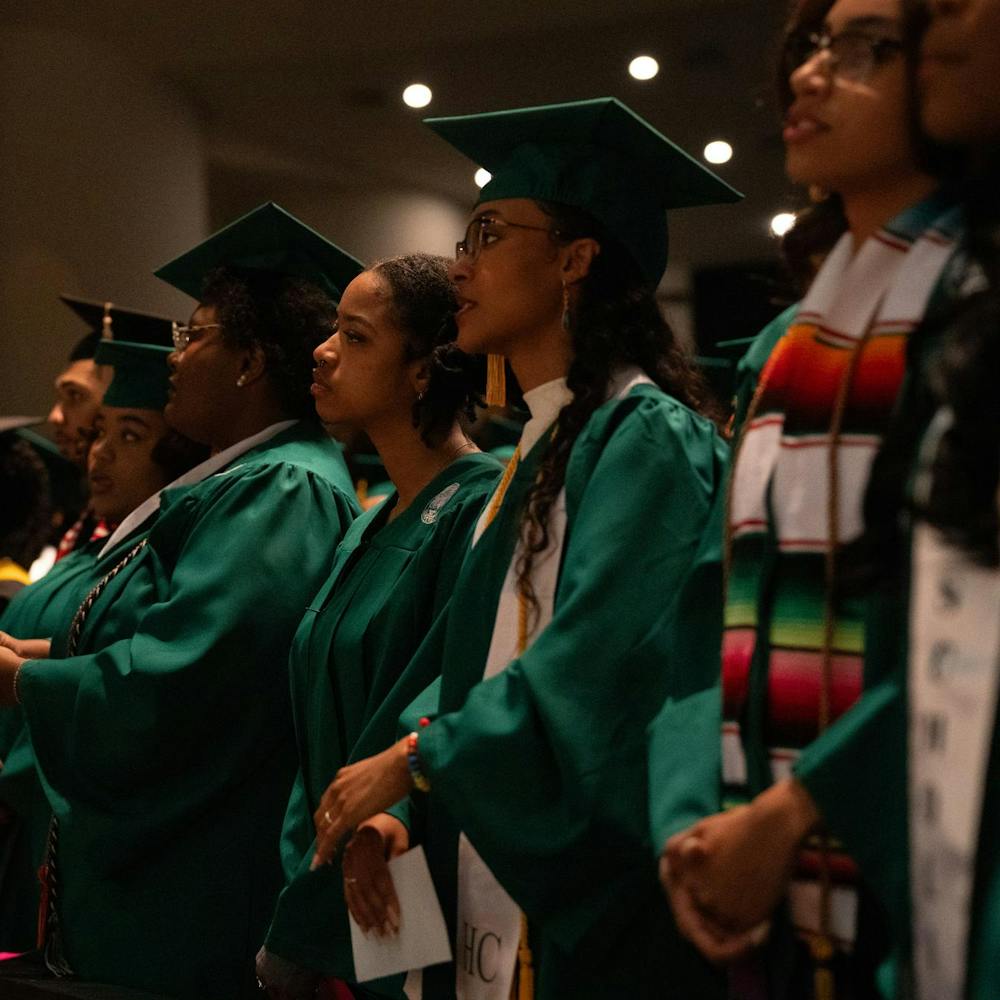Walking home as usual after interning at the MSU Plant Biology Laboratories, 16-year-old Detroit high school student Brenten Williams said he was stopped by an MSU police officer.
"I was walking toward the bridge near Abbot and Mason (halls) and a cop pulled up in a motorcycle," he said. "The next thing I know he shouts, 'Hey you come here' and turns on his siren."
Williams said the officer told him a car had been broken into down the street and that Williams fit the description of the suspect. Then the officer said the person they were looking for was seen wearing a jersey, but Williams said he was wearing a white button-down shirt.
He said he felt the officer - whose name Williams did not have - stopped him because he is black.
"The way he shouted at me to come here and talked to me was very demeaning - if not just blatant racial profiling."
MSU police Sgt. Florene McGlothian-Taylor said the department doesn't condone or practice racial profiling.
"If there was a crime that occurred and information went out by law enforcement of a description and if the person matched the description, that would not be considered racial profiling," she said.
McGlothian-Taylor said every situation depends on information given to the officer.
"If we have witnesses telling us they saw someone that fit a description around the scene of a crime, as officers, it's our job to follow up on it," she said.
East Lansing police Lt. Kim Johnson agrees and said racial profiling doesn't exist.
"From a police standpoint it does not exist," he said. "We don't profile individuals or stop people because of race, we stop them because they are committing crimes."
McGlothian-Taylor said if anyone feels they have been discriminated against they should file a complaint with the department online or contact MSU police immediately. An investigation would take place and the incident would be checked out thoroughly, she said.
In 2003, MSU police released a survey that said about 85 percent of the MSU population believed MSU police do an excellent or a good job.
According to the report summary, despite the public perception that MSU police engage in racial profiling, there was no statistical evidence that some ethnic groups are targeted more by police.
But Geneva S. Thomas, former Black Student Alliance president, said racial profiling does happen, and the university should heighten students' consciousness of it.
Vice President for Student Affairs and Services Lee June said race issues are not ignored by the administration.
"When allegations of race issues come up and are brought to my attention, we do look into them," he said. "We take this seriously."
Criminal justice Professor Charles Corley helped the MSU police collect data dealing with race issues in 2001.
"We collected data because (MSU police) had inquiries regarding diversity issues on campus," he said. "But there was no substantial numbers showing certain races were targeted."
Although the data collected showed Asian drivers were more likely to receive tickets, he said it had nothing to do with race in general.
"We interpret this as a language barrier because oftentimes they were immigrants and were not familiar with driving," Corley said.
International student and economics senior Kabir Agarwal said racial profiling doesn't only happen to black people.
Agarwal said his first year at the university, he felt mistreated by MSU police because he wasn't familiar with American laws.
"One time an MSU cop pulled me over and said he wanted to give me a Breathalyzer test," he said. "I had no idea what it was or why I needed one and when I started to ask what the procedure was, he said I was refusing the test and wrote me up."
Telecommunication, information studies and media senior and racial ethnic aide Stanley Park said because blacks outnumber Asian Pacific Americans, or APAs, racial profiling is not an issue for most Asian Pacific Americans.
"I was living in Hubbard Hall and the substantial hall percentage of blacks compared to APAs is lopsided, 2,000 compared to 50," he said.
He said he has never been stopped randomly but can't speak for all other Asian Pacific American students.
Williams said the incident with MSU police has left him with a bad impression of MSU.
"MSU was my favorite institute of higher learning, but after that incident I can't see myself attending," he said.






